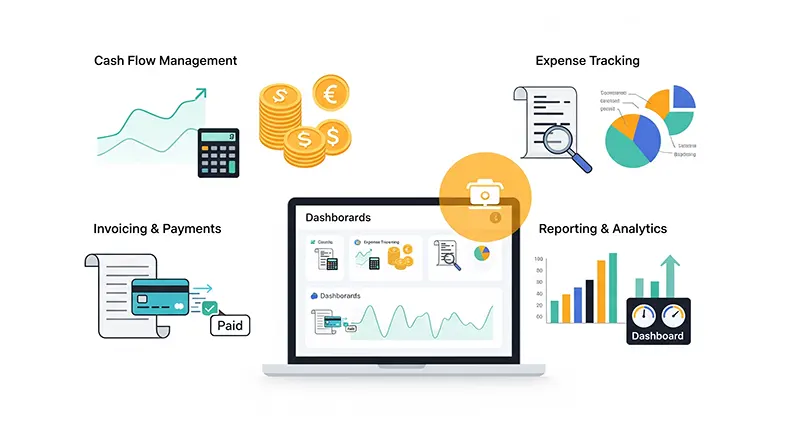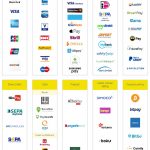For small business owners, every minute and every dollar counts. The days of making a trip to the bank to deposit a check or painstakingly reconciling ledgers are long gone. Today, a robust online banking platform is no longer a luxury but a critical tool for survival and growth. The right set of features can automate tedious tasks, provide real-time financial insights, and empower business owners to manage their finances efficiently from anywhere.
Here are the best online banking features that every small business owner should look for to streamline their operations and gain a competitive edge.
1. Centralized and Real-Time Financial Dashboards
A small business often has multiple accounts—checking, savings, credit cards, and loans. A top-tier online banking platform consolidates all these accounts into a single, user-friendly dashboard. This “single pane of glass” provides a comprehensive, real-time view of your business’s financial health.
- At-a-Glance Balances: Instantly see the balances of all your accounts without having to log in to different platforms.
- Transaction Monitoring: View and search for transactions in real-time. This is essential for monitoring cash flow, identifying unusual activity, and staying on top of your financial position.
- Cash Flow Forecasting: Some advanced platforms use AI to analyze your spending and earning patterns, providing projections that help you anticipate future cash flow needs and make informed decisions.
2. Advanced Payments and Transfer Capabilities
The ability to move money quickly and securely is a non-negotiable feature for any business.
- Automated Clearing House (ACH) and Wire Transfers: Look for platforms that allow you to set up both one-time and recurring ACH payments for vendors and employees. The ability to send and receive both domestic and international wire transfers is crucial for businesses with a global footprint.
- Mobile Check Deposit: This feature is a game-changer. It allows you to deposit customer checks on the spot by simply taking a picture with your smartphone, eliminating the need for a trip to the bank and speeding up your cash flow.
- Streamlined Bill Pay: Forget writing and mailing checks. A solid online banking platform allows you to manage and pay all your bills from a single location, schedule future payments, and track your payment history effortlessly.
3. Seamless Accounting Software Integration
One of the biggest time-sinks for small businesses is manual data entry and financial reconciliation. The best online banking platforms directly integrate with popular accounting software like QuickBooks, Xero, and FreshBooks.
- Automated Data Syncing: This integration automatically syncs your bank transactions with your accounting software, eliminating manual data entry and significantly reducing the risk of human error.
- Simplified Reconciliation: With automated syncing, reconciling your books becomes a quick and easy process, freeing up valuable time that you can dedicate to growing your business.
4. Robust Security and Fraud Prevention
Small businesses are increasingly targeted by cybercriminals. Online banking platforms must provide a suite of security features that protect your assets and sensitive data.
- Two-Factor Authentication (2FA): This is a must-have feature that requires a second form of verification (like a code sent to your phone) to log in.
- Customizable Alerts: Set up real-time notifications for specific activities, such as transactions over a certain amount, low account balances, or unusual login attempts.
- User Permissions and Controls: This is critical for teams. The ability to create different user roles with specific permissions—for example, a bookkeeper who can view transactions but not initiate payments—provides a crucial layer of internal control and security.
5. Additional Value-Added Services
Many banks now go beyond basic banking to offer a suite of services designed to help small businesses thrive.
- Payroll Services: Integrated payroll services can simplify paying your team, handling direct deposits, and even managing tax filings.
- Digital Invoicing: Some platforms allow you to create and send professional invoices directly from your banking dashboard and accept payments via ACH or card, streamlining your entire accounts receivable process.
- Access to Capital: Your banking platform might offer streamlined applications for business loans, lines of credit, and credit cards, often leveraging your transaction history for faster approvals.
By carefully selecting a bank with these essential features, a small business owner can turn their online banking platform into a powerful financial hub. It’s a tool that automates the mundane, provides actionable insights, and ultimately helps them take control of their finances so they can focus on what they do best: building their business.










